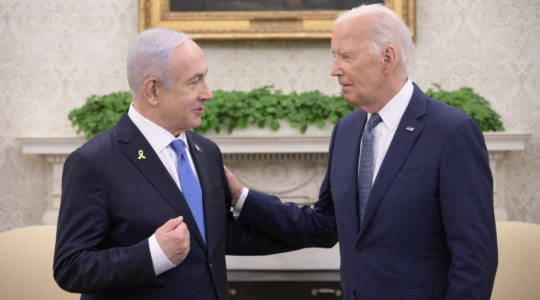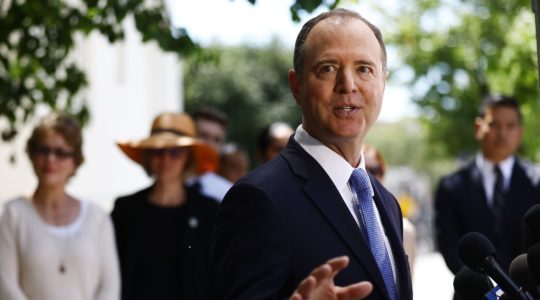ARLINGTON, Va. (JTA) — U.S. Sen. Joseph Lieberman said an American-led coalition to attack at least some of Iran’s nuclear facilities would get bipartisan support.
Speaking Monday at B’nai B’rith International’s policy conference here, Lieberman (I-Conn.) said, “There will be overwhelming bipartisan support of that action in the Congress of the United States,” regardless of whether Barack Obama or Mitt Romney is president.
Criticizing politicians who are more loyal to their party than to their country, Lieberman said the Iranian threat is “one of the rare exceptions” of bipartisanship. “Together, we have passed the toughest sanctions ever,” he noted.
However, those sanctions have not affected Iran “one iota” and the Islamic Republic is “still speeding along” in its attempt to amass a nuclear arsenal, said Lieberman, who is not running for reelection in November.
“It’s about the stability of the Middle East and ultimately about the stability of the entire world,” he told the some 150 conference participants.
Israel’s ambassador to the U.S., Michael Oren, also addressed the conference, as did former U.S. Rep. Robert Wexler (D-Fla.) and U.S. Sen. Jon Kyl (R-Ariz.) surrogates, respectively, for President Obama and Republican nominee Mitt Romney.
Also Monday, U.S. Secretary of State Hillary Clinton rejected deadlines on Iran to spur more cooperative behavior but acknowledged that the threat of a nuclear Iran is especially urgent for Israel.
"We’re not setting deadlines," Clinton said of Iran in an interview with Bloomberg News released Monday by the State Department. "We’re watching very carefully about what they do, because it’s always been more about their actions and their words."
The comments were made a day after Israeli Prime Minister Benjamin Netanyahu in his weekly Cabinet meeting called on the international community to "set Iran moral and practical red lines, lines that will stop its race to achieve nuclear weapons."
Separately, Netanyahu told the Canadian Broadcasting Corp. that Israel and the United States were discussing red lines.
Clinton in her Bloomberg interview said Israel supported the U.S. policy of isolating Iran through sanctions and diplomacy, but added that she understood that Israel saw the matter with greater urgency.
"They’re more anxious about a quick response because they feel that they’re right in the bull’s eye, so to speak, if this doesn’t end up changing Iranian behavior and their nuclear weapons program," she said. "But we’re convinced that we have more time to focus on these sanctions, to do everything we can to bring Iran to a good faith negotiation."

Help ensure Jewish news remains accessible to all. Your donation to the Jewish Telegraphic Agency powers the trusted journalism that has connected Jewish communities worldwide for more than 100 years. With your help, JTA can continue to deliver vital news and insights. Donate today.





